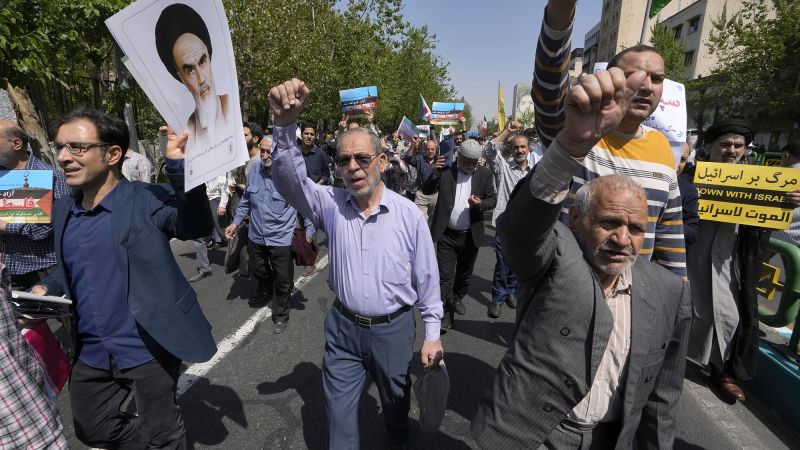Israel and Iran have broken the taboo against overt military strikes on each other’s territory, leading to a dangerous new era in the Middle East. The question now is whether the enemies have satisfied their imperatives for deterrence and saving face, or if they are headed towards a new cycle of escalation. Israel recently conducted strikes near Isfahan, potentially to demonstrate their capacity to penetrate deep into Iran. This marks a significant escalation in the confrontation and raises concerns that the situation could quickly spiral out of control.
Israel’s recent strikes in Iran aimed to show their ability to evade Iranian defenses near nuclear facilities without forcing Iran into a response that could escalate the conflict towards all-out war. Both countries are on edge, making it difficult for them to accurately assess each other’s potential reactions. Iran had warned of a robust response to any Israeli attack, but early indications suggest that they may be prepared to de-escalate without further retaliation. This balance is crucial in containing the situation and avoiding a major regional conflict.
Israel’s attack on Iran also highlights Prime Minister Netanyahu’s refusal to heed President Biden’s advice and warnings regarding further escalation. While Israel is reliant on the US, it is unlikely to allow attacks on its territory to go unanswered. The US is focusing on de-escalating tensions and distancing itself from Israeli actions, as it seeks to prevent a wider conflict in the region. Biden could get dragged into a military conflict he has tried to avoid, potentially impacting the November election and his political standing.
Israel’s vulnerability is evident as it faces threats from multiple fronts, including Hamas in Gaza, Hezbollah in Lebanon, and Iran directly. Israel’s conflict with Hezbollah, which has a substantial missile arsenal, poses a significant risk to Israeli cities. The recent events have shattered previous assumptions about Iran and Israel’s relationship, setting the stage for a long-term cycle of escalation. The capacity to evade Iran’s defenses may give Israel a strategic edge, but it also raises concerns about Iran rushing across the nuclear threshold.
The relationship between Israel and Iran is characterized by a competitive struggle with no clear solutions in sight. Israel’s decision to ignore advice and strike Iran may impact its standing with allies and allies who had previously criticized its actions. Israel views itself in an existential battle with Iran, leading to unilateral actions when it perceives a threat to its survival. Iran’s retaliation to Israeli attacks signals a shift in their approach, making it clear that Israel will face consequences for its actions in the region. The recent events may only be a precursor to a more dangerous escalation in the future.


